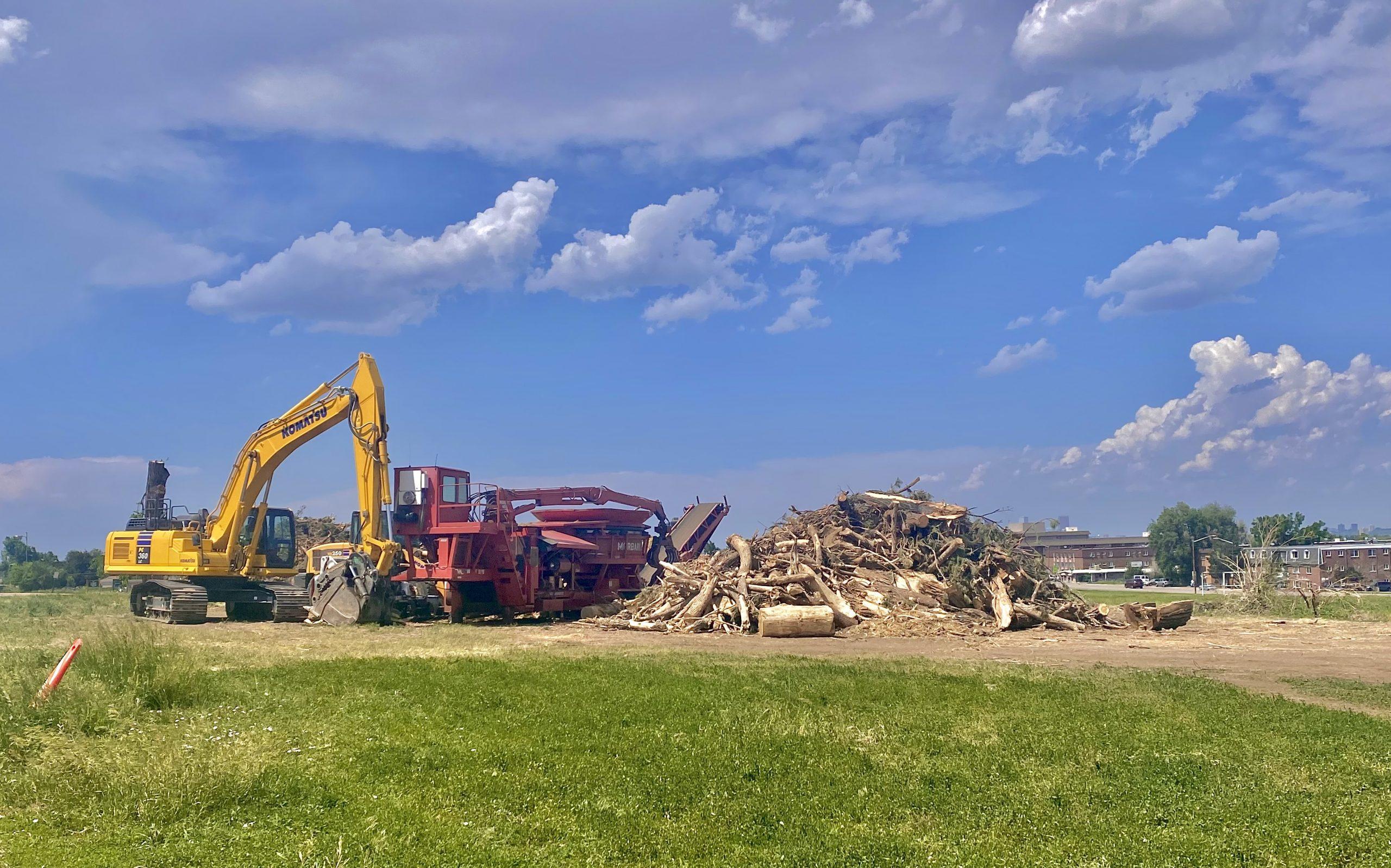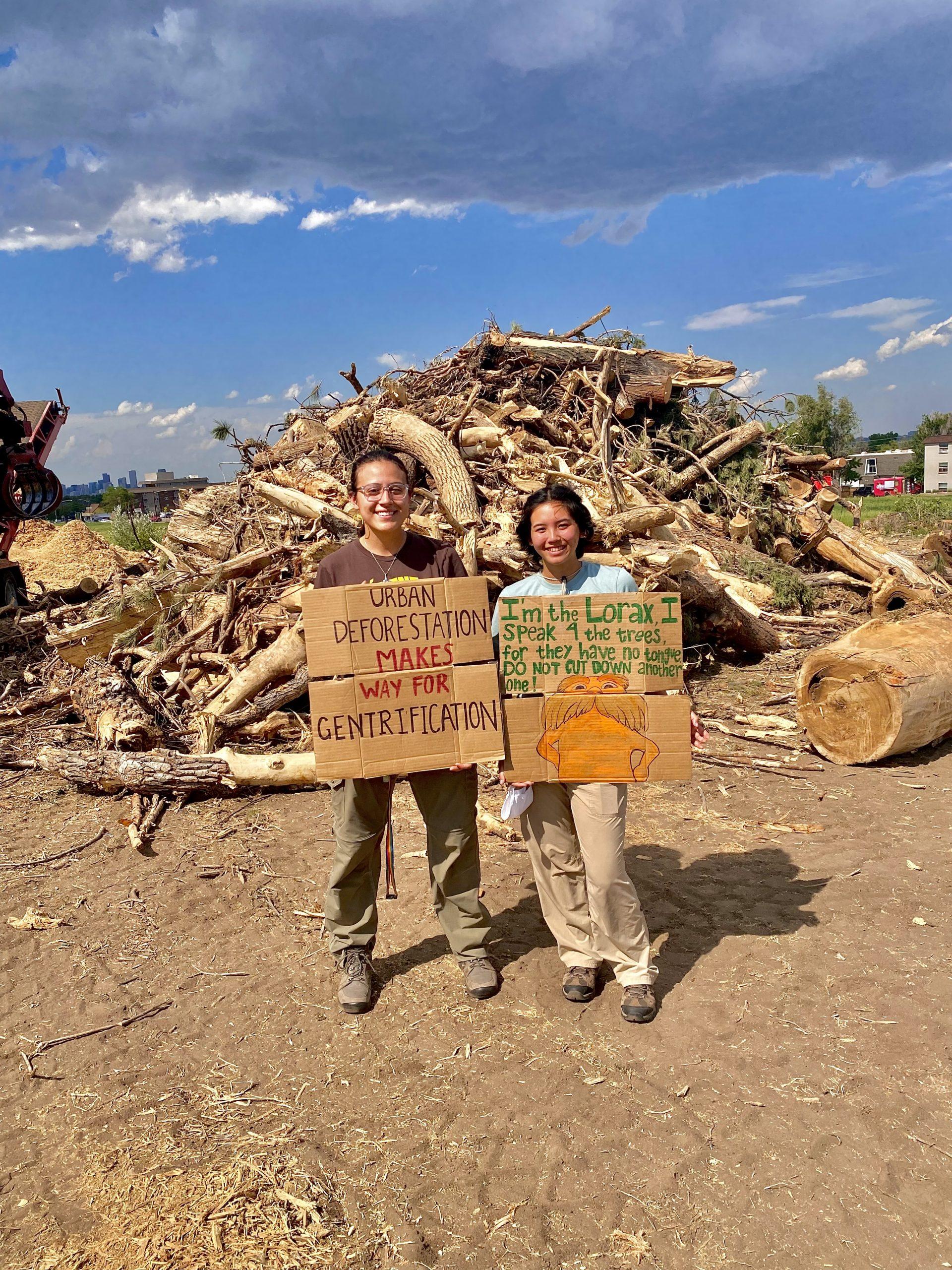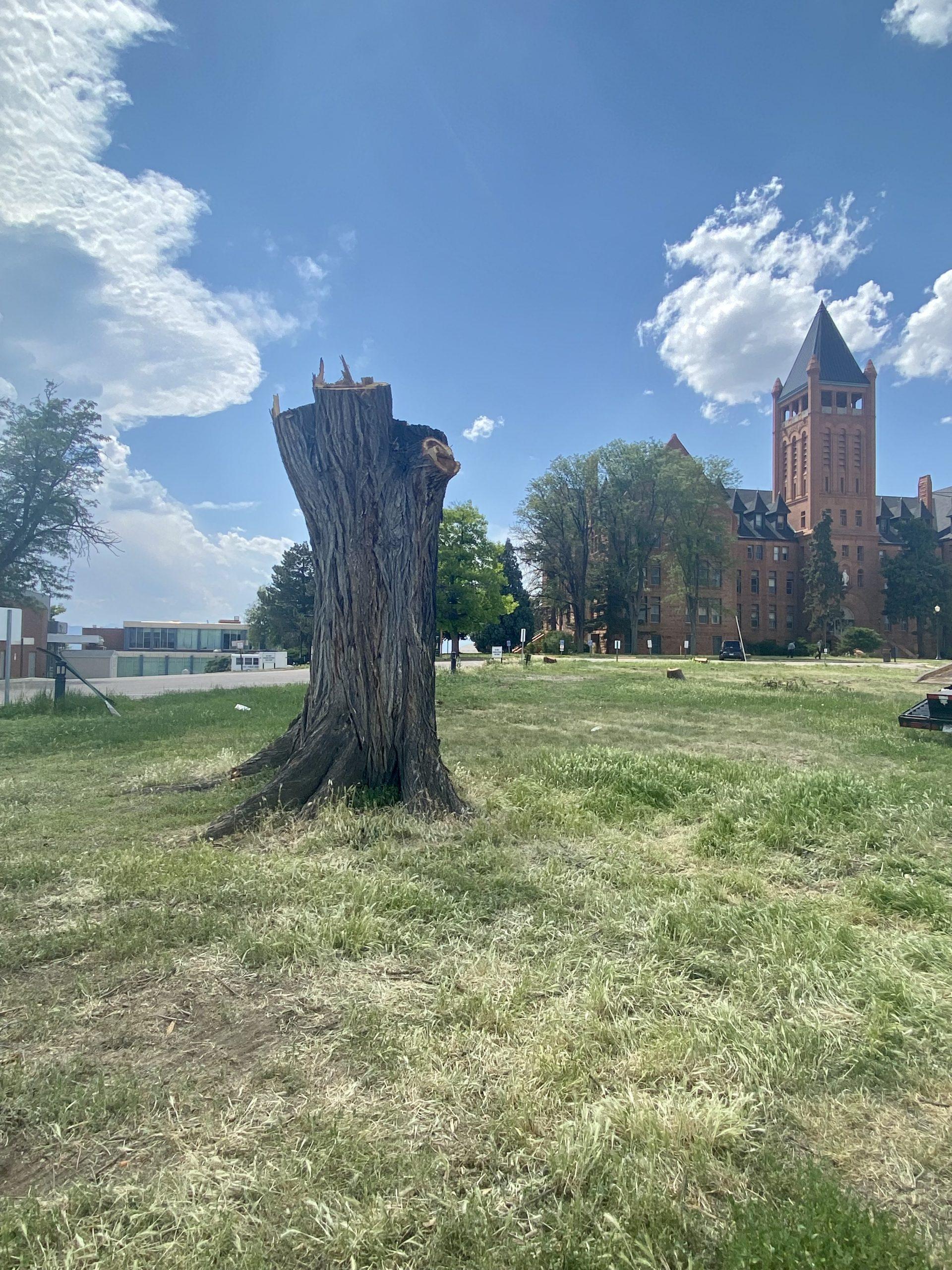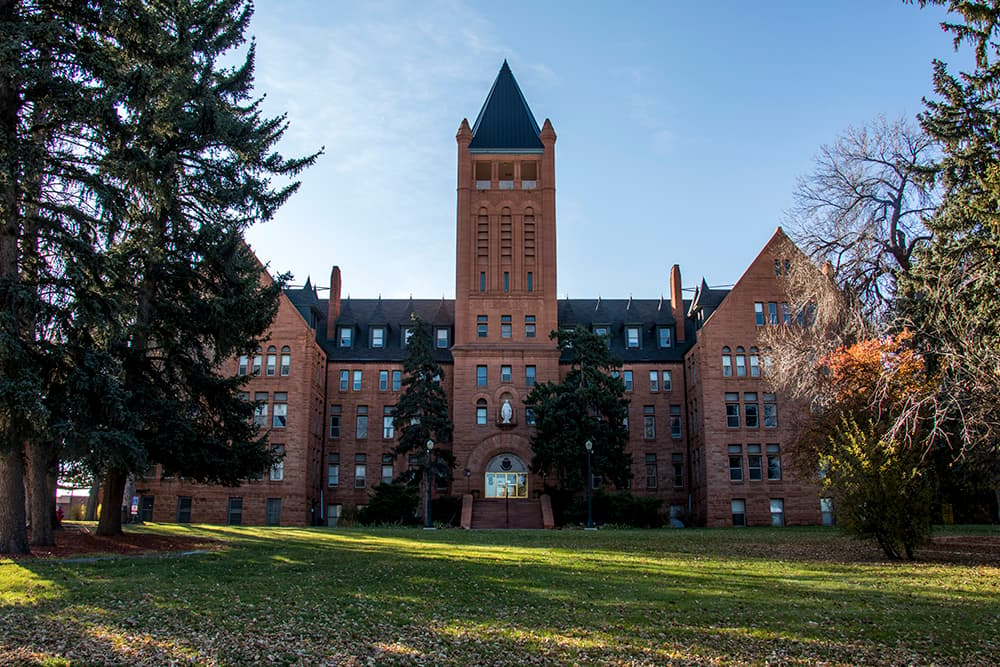On the sunny and blisteringly hot recent Sunday, Janelle Washington looked around the old campus at Loretto Heights and apologized for being emotional.
She isn't an alumni of Colorado Heights University, which closed its doors in 2017, or any of the other schools housed and later shuttered at the campus. Washington, 69, is simply a resident of Harvey Park (she lives a few blocks from the campus) who said she is grieving the loss of more than 200 trees that were cut down at the campus to make way for new development plans, which include retail spaces and affordable housing.
"I drove by there one day... and I saw all the trees in the front were cut, and I couldn't stop crying," Washington said. "I'm just sad for the mature trees. I love nature, and I especially love trees."

The Loretto Heights project has been in the works for well over three years, ever since the property was purchased in July 2018 by Westside Investment Partners. Mark Witkiewicz, principal at Westside, previously said he wasn't interested in changing the neighborhood but was looking to "enhance" it with this development project, which also includes plans for a grocery store, a theatre and the planting of over 1,000 new trees. Construction on part of the project has already begun, starting with the historic Pancratia Hall renovation, which when completed will house 72 affordable units.
According to Denver City Councilmember Kevin Flynn, who represents the area, thoughts of housing solutions have swirled around the Loretto Heights campus even before the parcel was purchased. Flynn also emphasized that the developer was in constant communication with the community throughout the process, hosting monthly meetings with residents through the Harvey Park Neighborhood association so they can offer their own ideas to the project.
And yet, Washington said she didn't know the project included the "slaughtering" of about 238 trees.
"There weren't many people who went to the monthly meetings the developer had with Harvey Park Neighborhood (association)," Washington said. "I didn't go. But I had no idea...I thought sure the developer would come and take some trees, but 238? On one piece of land? That just pushed me over the edge."
So Washington organized the rally on Sunday, a "NADA protest" as she dubbed it, where about eight people huddled in the shade, equipped with water and cardboard signs that read "Let the trees live" and "Urban deforestation makes way for gentrification."

They came to spread awareness about the tree cutting and to support Washington's claim that Westside could've been more transparent about the number of trees that would be removed.
Damar Garcia and Kealohilani Minami, two attendees who are both 21, said Westside should've done a better job reaching out to residents who aren't in the neighborhood association.
"I'm not a part of any neighborhood association, and to be honest, I think that only older people are a part of those groups," Garcia said. "I think there needed to be more outreach towards younger people... low-income folks, immigrants with language barriers and to those who don't have time to go to association meetings. Even putting up signs around Federal [Blvd.] would have drawn more attention to the project."
Lupe Loyd, 73, who attended the rally with a friend, respectfully disagreed with parts of Washington and Garcia's stance.
Loyd, who lives across from the cemetery where 62 Sisters of Loretto are buried, said Westside has been in contact with residents since they purchased the property, resulting in about 30 meetings since 2018, if memory serves her right.
"Mark [Witkiewicz] has always been one for involving the community," Loyd said. "We were well aware of [the trees] because if you go to the meetings, you'll know what's going on. They weren't trying to sneak one past us."
Loyd added that Westside's plan has always taken the trees into consideration and the developer plans to plant at least five trees for every tree that was cut in the renovation process, resulting in almost 1,000 new trees. But Loyd agreed that maybe more outreach could've been done.
"It's hard," Loyd said. "How do we reach more people? I could have twittered, Facebook or put something on the NextDoor app. We could've always done more."
Throughout the rally, Washington emphasized that Westside wasn't wrong. On Facebook, she cried that "this is our fault, this is my fault for not paying attention, not going to the meetings, & I am grieving & ashamed!"
Going forward, Washington said she wants to wade into the waters of tree preservation and activism.
Garcia and Minami added that in the future, developers should normalize "coexisting" with nature "rather than over take it."

In an email to residents, Witkiewicz said Westside understood the "importance of an urban tree canopy" and apologized profusely for "not overly communicating and preparing [residents] for change."
He said mulch from the cut trees would be available for residents starting Tuesday, June 15. He also added that residents could always call or email him with any concerns.
At the end of the rally, Thomas Allen from the Denver Indian Center said a short prayer in front of a large pile of cut down trees. He burned sage while offering "words of healing."
"Change is hard, so I'm here today to offer blessings, good feelings and good thoughts," Allen said. "There's always good in things, even when we don't see it right away."
The day ended in rain, a cool breeze and maybe the start of more community involvement.












